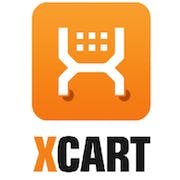Discover the best platform-as-a-service solutions for your business and streamline your digital infrastructure. Read our comprehensive buyer's guide today.
Investing in Platform-as-a-Service (PaaS) solutions is becoming increasingly popular for businesses of all sizes and industries. As the world becomes more digital, companies must ensure that their technology keeps up with the pace of change. PaaS offers a powerful and flexible way to store, manage, and analyze data, as well as develop and deploy new applications and software. With a wide range of features and benefits, PaaS is quickly becoming the go-to solution for business users looking to stay ahead of the curve. But with so many providers and options available, it can be challenging to make the right choice. In this buyer's guide, we'll explore everything you need to know to find the best PaaS software for your business.
What is platform-as-a-service solutions?
Platform-as-a-Service (PaaS) is a cloud computing model that provides users with an environment for building, testing, and deploying software applications. With this technology, developers can create applications without having to worry about the underlying infrastructure. It offers an all-inclusive environment for application development and deployment, including the essential tools and resources needed for development, testing, and deployment.
Businesses of all sizes can leverage this platform to swiftly create and deploy applications to market. Here are some of its common use cases:
- Web application development and deployment
- Mobile application development and deployment
- Integration with other cloud service provider such as Artificial Intelligence (AI) and Machine Learning (ML)
- Database development and management
- Analytics development and reporting
PaaS solutions also offer scalable resources to accommodate the needs of growing businesses. This scalability reduces the cost of developing and deploying applications, making it an attractive option for startups and small businesses. Many Fortune 500 companies use these solutions such as Salesforce, Microsoft Azure, IBM Cloud, and Amazon Web Services. These companies use PaaS to develop, test, and deploy applications in a more agile and rapid manner.
What are the top benefits of platform-as-a-service tools?
In contrast to traditional self-hosted software development, PaaS solutions give businesses the control and flexibility that they need to stay ahead of the competition. Here are some of the reasons why it is an essential tool for modern businesses:
- Reduced time-to-market: With PaaS solutions, businesses can develop applications much faster than traditional software development methods. Providers of this tool remove a lot of the complexity of software development, giving businesses more time to focus on their app's core features.
- Lower costs: Using it is a cost-effective way for businesses to develop and run their applications. PaaS providers take care of much of the underlying infrastructure, reducing the overhead and maintenance costs associated with hosting software. Organizations using PaaS techniques have reported operational savings of up to 50%compared to having individual project teams manage their own siloed technology stacks.
- More flexibility: PaaS applications offer businesses the flexibility to scale their applications as needed. This level of flexibility ensures that businesses can be agile and adapt to changing markets and customer needs.
- Access to innovation: Providers of this solution offer businesses access to a range of innovative tools and additional features. These key features help businesses stay on the cutting edge of software development, providing an advantage over competitors that still rely on traditional software development.
10 key features of platform-as-a-service software
Platform-as-a-Service (PaaS) solutions are becoming increasingly popular among businesses for their ease of use, scalability, and cost-effectiveness. Here are 10 of their common features to look out for:
1. Cloud-based: PaaS programs run on cloud-based infrastructure, which eliminates the need for on-premise hardware and maintenance costs.
2. Accessible: They are accessible through a web-based interface, making them ideal for remote work environments.
3. Scalable: These tools can easily scale up or down to meet changing business needs, often with just a few clicks.
4. Security: They offer built-in security features, including data encryption, access control, and network perimeter protection.
5. Flexibility: They support multiple programming languages and can be customized to meet specific business requirements.
6. Collaboration: PaaS programs often include collaboration platforms that allow teams to work together on projects in real-time.
7. Deployment: Theystreamline the deployment process by providing preconfigured environments and tools that make it easy to deploy applications quickly.
8. Testing: PaaS systems include testing tools that help developers ensure their applications work as intended before they are deployed. Statistics from Worldmetrics reflect that 32% of these development teams are using PaaS for developing and testing software applications.
9. Analytics: They often include analytics tools that allow businesses to track key metrics and make data-driven business decisions.
10. Support: PaaS apps generally offer 24/7 support and maintenance, ensuring that businesses can rely on them to keep their applications running smoothly.
Key considerations when purchasing platform-as-a-service systems
This cloud computing service provides customers with a platform to develop, run, and manage applications without the need to build and maintain the infrastructure. It helps the streamlining of business processes, reduce costs, and increase scalability. However, with so many PaaS solutions available in the market, choosing the right one can be challenging. In this article, we will discuss the key factors you should consider when purchasing a PaaS solution.
1. Flexibility and customization: When choosing a PaaS tool, make sure that it is flexible enough to meet all your business requirements. Your provider should offer customization options to make sure that your applications are tailored to your business needs. Additionally, it should allow you to use multiple programming languages and other development tools.
2. Scalability and performance: The ability to scale your application is one of the most critical factors to consider when purchasing a PaaS system. As your business grows, so should your application. Make sure your supplier offers horizontal and vertical scalability options to accommodate growth. The program should also be reliable and provide enough computing power to ensure that your application can handle high traffic and workload demands.
3. Security and compliance: Security is paramount in any application. When choosing this application, make sure that it is secure and can protect your data and applications from cybersecurity threats. It should also be compliant with relevant industry and government data protection regulations.
4. User experience: Your PaaS app should offer a user-friendly interface and provide easy access to your application and data. It should have an intuitive dashboard and user interface for managing and monitoring your application's performance.
5. Integration capabilities: It should be able to integrate smoothly with your other business application stack to create a seamless user experience. Ensure that it can connect to other applications, databases, and APIs easily.
6. Support and maintenance: A PaaS package requires regular maintenance and updates. Ensure that the provider offers timely support and maintenance services to minimize downtime and technical glitches. Look for one that offers 24/7 technical support and monitoring services to ensure that your application is always accessible
Trends shaping the platform-as-a-service solutions industry
Without a doubt, this platform service has become a crucial part of any enterprise’s digital transformation journey. Given the increasing complexity of IT infrastructure and the growing adoption of cloud computing, PaaS software has become essential. The adoption of PaaS has been increasing rapidly, with 50% of general managers predicting an increase in use of the technology. It is calculated that more than 93% of the total enterprises in the world already use cloud services and about 30% of all IT budgets are allocated for cloud computing. As we head into 2024 and beyond, here are some of its biggest trends that any business leader should consider:
1. AI and ML-enabled platforms: Artificial Intelligence (AI) and Machine Learning (ML) are set to transform PaaS, making it smarter, more efficient and more intuitive. Businesses are thus increasingly embracing AI-enabled PaaS solutions to implement automation and unlock deep insights from their data.
2. Low-code development: Low-code development is gaining traction, by enabling even non-technical users to create software applications. As a result, businesses can prototype and launch applications more quickly than ever, thus reducing the time-to-market.
3. Hybrid cloud PaaS: With businesses seeking to optimize their cloud infrastructure costs, hybrid cloud PaaS solutions that allow the deployment of applications across on-premise and cloud environments have become increasingly popular.
4. Security and privacy: With more and more businesses relying on PaaS for mission-critical applications, security and privacy have become paramount. As a result, PaaS vendors are doubling down on security measures, leveraging the latest technologies such as blockchain and homomorphic encryption.
5. Integration capabilities: Using multiple cloud and on-premise platforms in tandem has become the norm for many businesses. PaaS solutions that support service integration between different platforms, tools, and technologies are thus increasingly in demand.
Conclusion
T sum up, PaaS stands as a transformative solution that empowers businesses to harness the full potential of cloud computing. As technology continues to evolve, staying informed about the latest trends and best practices in this space is crucial for maximizing its benefits and maintaining a competitive edge. Whether you are a startup aiming to scale rapidly or an established enterprise looking to streamline operations, PaaS provides a pathway to achieve your technological and business objectives.








